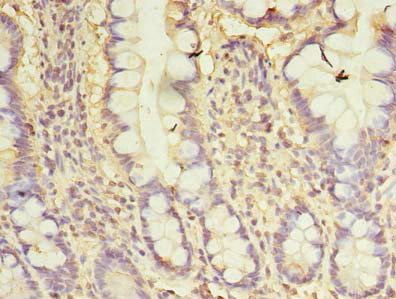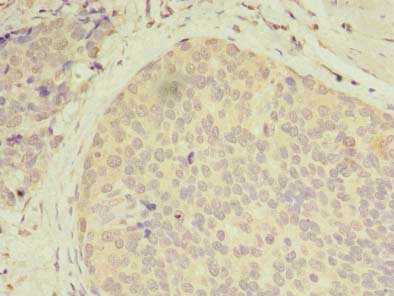Full Product Name
Rabbit anti-Homo sapiens (Human) CXCL6 Polyclonal antibody
Alternative Names
C X C motif chemokine 6 antibody; Chemokine (C X C motif) ligand 6 antibody; Chemokine alpha 3 antibody; CKA 3 antibody; CKA-3 antibody; CKA3 antibody; CXCL 6 antibody; CXCL6 antibody; CXCL6_HUMAN antibody; GCP 2 antibody; GCP-2 antibody; Granulocyte chemotactic protein 2 antibody; N-processed variant 3 antibody; SCYB6 antibody; Small inducible cytokine B6 antibody; Small inducible cytokine subfamily B (Cys X Cys) member 6 antibody; Small inducible cytokine subfamily B (Cys X Cys) member b antibody; Small-inducible cytokine B6 antibody
Immunogen
Recombinant Human C-X-C motif chemokine 6 protein (38-114AA)
Immunogen Species
Homo sapiens (Human)
Conjugate
Non-conjugated
The CXCL6 Antibody (Product code: CSB-PA06169A0Rb) is Non-conjugated. For CXCL6 Antibody with conjugates, please check the following table.
Available Conjugates
| Conjugate |
Product Code |
Product Name |
Application |
| HRP |
CSB-PA06169B0Rb |
CXCL6 Antibody, HRP conjugated |
ELISA |
| FITC |
CSB-PA06169C0Rb |
CXCL6 Antibody, FITC conjugated |
|
| Biotin |
CSB-PA06169D0Rb |
CXCL6 Antibody, Biotin conjugated |
ELISA |
Purification Method
>95%, Protein G purified
Concentration
It differs from different batches. Please contact us to confirm it.
Buffer
Preservative: 0.03% Proclin 300
Constituents: 50% Glycerol, 0.01M PBS, PH 7.4
Tested Applications
ELISA, IHC
Recommended Dilution
| Application |
Recommended Dilution |
| IHC |
1:20-1:200 |
Storage
Upon receipt, store at -20°C or -80°C. Avoid repeated freeze.
Lead Time
Basically, we can dispatch the products out in 1-3 working days after receiving your orders. Delivery time maybe differs from different purchasing way or location, please kindly consult your local distributors for specific delivery time.
Usage
For Research Use Only. Not for use in diagnostic or therapeutic procedures.






